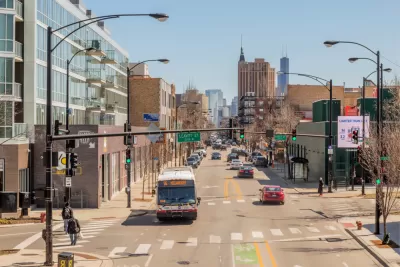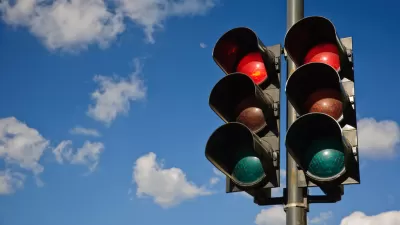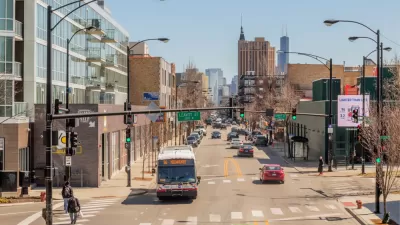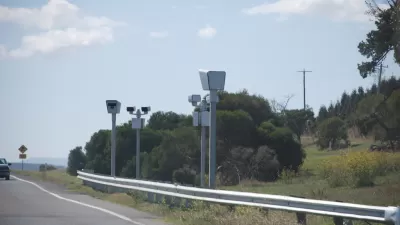Advocates of automated enforcement argue it saves lives, but despite a dramatic rise in speeding tickets, pedestrian fatalities grew in 2021.

Update: The WBEZ article referenced here was corrected by the editors due to errors in reporting and language that stated that the automated enforcement program did not improve safety. Please see their corrections here.
“Last March, Chicago deployed its robo camera system to ticket drivers who sped 6 miles or more above the limit, lowering the threshold from the 10 mph trigger set by former Mayor Rahm Emanuel nearly a decade ago.” A WBEZ article by Michael Gerstein examines the results of the program. “After the threshold went down from 10 to 6 mph, a WBEZ analysis found the number of tickets issued by the city increased dramatically. During the new program’s first full year, the city issued more than 2.34 million speed camera tickets, a roughly 400% increase from the most comparable time period — March 2018 to March 2019, before the pandemic hit, when driving volume had not yet plummeted.” The program brought in close to $106 million since March 2021.
However, “In the year during which the change took effect — 2021 — the number of traffic fatalities actually increased to 173 (compared to 151 deaths in 2020 and 118 in 2019), according to figures cited by the Lightfoot administration.” According to the article, “The average speed of the fastest drivers — those who were ticketed for driving 11-or-more miles per hour over the limit – did not change dramatically.”
While advocates say cameras are a “race-neutral” way to enforce traffic laws, save lives, and reduce the incidence of police encounters, the debate rages on in cities around the country. Some critics of the program call it a cash grab, arguing that it can be “financially crippling” to low-income residents whose neighborhoods, more likely to be located around freeways, tend to have the highest number of cameras. Addressing the question of whether speed cameras disproportionately impact low-income drivers, city comptroller Reshma said in a statement that the city is implementing programs to alleviate financial hardship, such as debt relief for low-income residents.
FULL STORY: Chicago’s speed cameras yield more tickets and fines, but also complaints and controversy

Maui's Vacation Rental Debate Turns Ugly
Verbal attacks, misinformation campaigns and fistfights plague a high-stakes debate to convert thousands of vacation rentals into long-term housing.

Planetizen Federal Action Tracker
A weekly monitor of how Trump’s orders and actions are impacting planners and planning in America.

In Urban Planning, AI Prompting Could be the New Design Thinking
Creativity has long been key to great urban design. What if we see AI as our new creative partner?

How Trump's HUD Budget Proposal Would Harm Homelessness Response
Experts say the change to the HUD budget would make it more difficult to identify people who are homeless and connect them with services, and to prevent homelessness.

The Vast Potential of the Right-of-Way
One writer argues that the space between two building faces is the most important element of the built environment.

Florida Seniors Face Rising Homelessness Risk
High housing costs are pushing more seniors, many of them on a fixed income, into homelessness.
Urban Design for Planners 1: Software Tools
This six-course series explores essential urban design concepts using open source software and equips planners with the tools they need to participate fully in the urban design process.
Planning for Universal Design
Learn the tools for implementing Universal Design in planning regulations.
Gallatin County Department of Planning & Community Development
Heyer Gruel & Associates PA
JM Goldson LLC
City of Camden Redevelopment Agency
City of Astoria
Transportation Research & Education Center (TREC) at Portland State University
Jefferson Parish Government
Camden Redevelopment Agency
City of Claremont





























